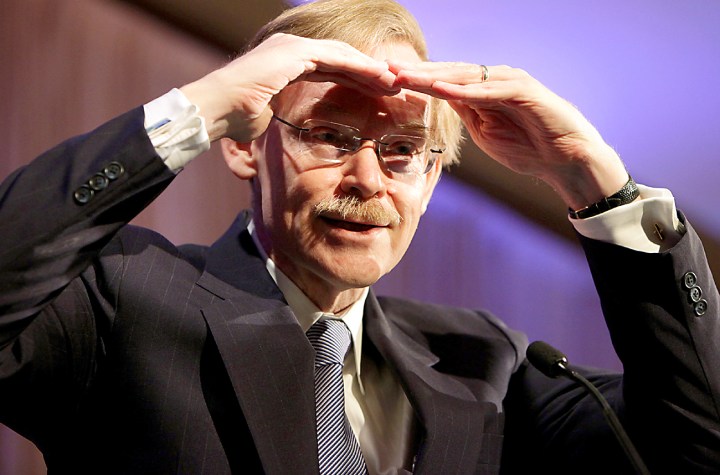Africa, Business Maverick, Politics
World Bank and China have plans for Africa. Anybody surprised?

The World Bank and China are discussing setting up low-cost factories in industrial zones in Africa, that the Chinese will build. A nice little idea that’s maybe meant to help could end in a new regime of industrial slavery.
The idea is to help the continent develop a manufacturing base, to give a boost to its very poor share of world trade. Trouble is, Africa – and not only rhino and elephant – will soon be greatly suffering due to the fact that China has become continent’s biggest trading partner. And many Africans are starting to fear that. So now that World Bank president Robert Zoellick thinks Beijing should move some of its lower-value manufacturing facilities to sub-Saharan Africa (such as making rubber ducks for your bathtub, at slave wages), maybe it’s time to ask Africans what they think of that.
China has pledged low-cost loans, an end to tariffs on 60% of exports, and debt forgiveness to poor nations at a recent China-Africa Summit in Egypt. But this seeming largesse might also be seen in another light. Reports say Chinese officials have been debating how to use their country’s $2 trillion in foreign exchange reserves to try to stimulate demand in developing countries. That sounds like a great idea, until you interrogate it. Beijing’s loans to such governments come free of the West’s usual human rights conditions (which are themselves often no more than cynical rhetoric). And Beijing has drawn criticism for propping up unpopular regimes in places like Sudan (where it looks for oil) and Guinea, where a military government murdered some 200 people recently, weeks before the Chinese invested $7 billion for minerals extraction.
Despite the high-level of anti-Western rhetoric that constantly emanates from Africa, many are starting to worry that China’s relationship with the continent is just another form of colonialism. They are also worried that Chinese competition in areas such as the manufacture of shoes and textiles will further undercut Africa’s weak industrial base. Zoellick says African countries need infrastructure such as power and transport to attract Chinese investment. We reckon he’s a little behind the curve on this issue, because China is already building ports, railroads and roads all over Africa at a rapid clip as a means of getting its hands on the continent’s mining riches.
You’d also guess Zoellick would be leery of China, as are most Western countries and businesses. But he was previously a managing director of Goldman Sachs, and latterly a former US deputy secretary of state and trade representative under the administration of George W Bush. So it looks as if the World Bank is currently under the sway of conservative interests vis-à-vis the US’s own relationship with China. The US can’t be bothered to fund and provide the technology transfer needed to kick-start the economies of the continent (unless it’s oil). Rather, for reasons of cost, of its own fears for national security and its own poor economic state after the meltdown of global markets, it would have cheap and labour-intensive China do the job instead. And then wade in and take the pickings when markets improve.
There will still be some stiff resistance in China itself to the notion of further seeding wealth across Africa. China’s interior provinces are way poorer than their coastal cousins so they are also desperate to attract jobs and investment. And Beijing has to encourage inward investment to stimulate new sources of demand for Chinese factories by creating more domestic consumer wealth. By shifting output elsewhere, it will just be denuding itself of its own energies.
But equally importantly, Africans need to put stringent conditions on Beijing over illegal and so-called medicinal demand for products such as abalone, ivory, rhino horn and other animal parts, before it says “Yes” to the lure of easy money.
It’s not a one-way street, Robert. And African leaders are starting to realise that.
By Mark Allix
Read more: AFP, Pan-African News Wire, BBC, AP, Sapa-Dpa, National Geographic
Main photo: World Bank President Robert Zoellick fields a question from the audience at the International Finance Corporation/Emerging Markets Private Equity Association annual Global Markets Private Equity Conference in Washington May 12, 2009. REUTERS/Yuri Gripas

















 Become an Insider
Become an Insider